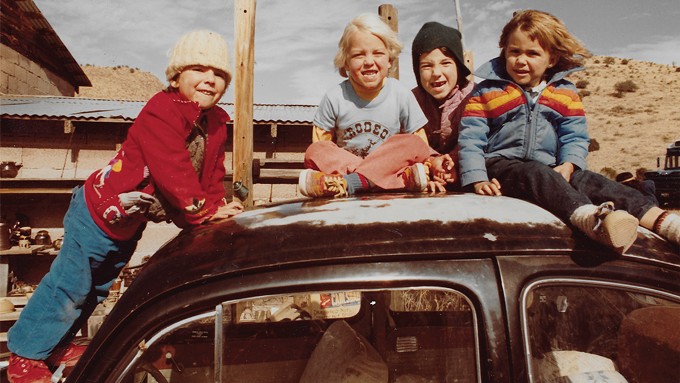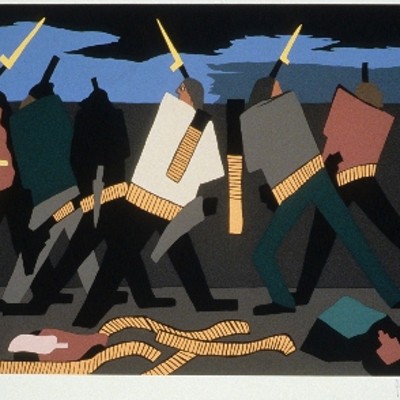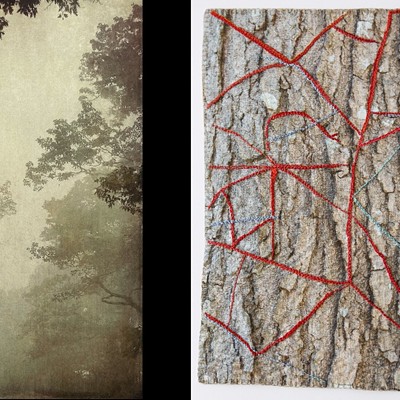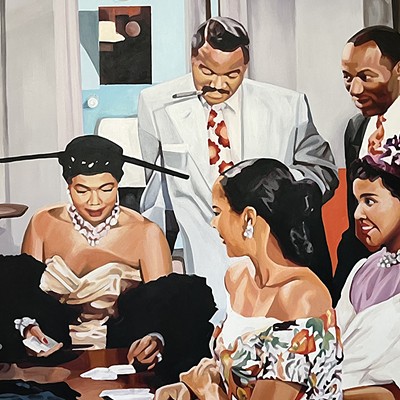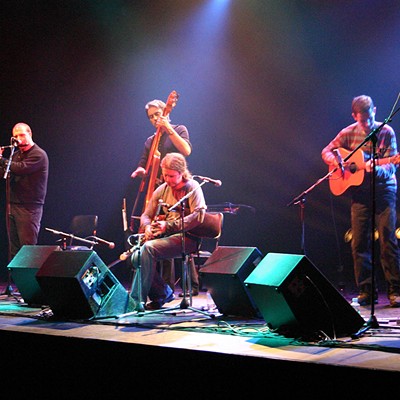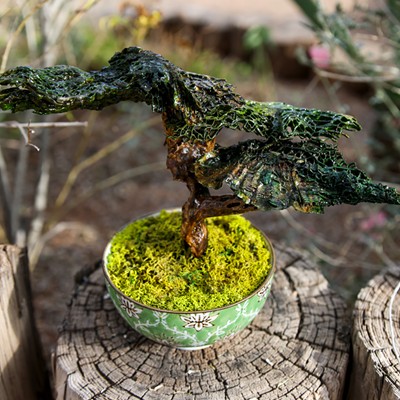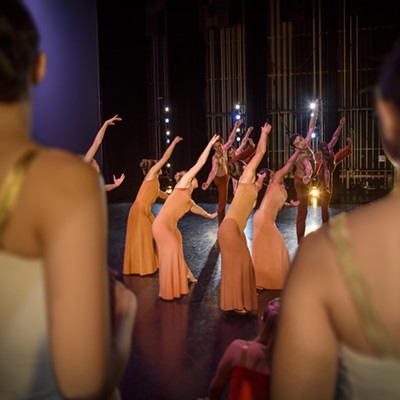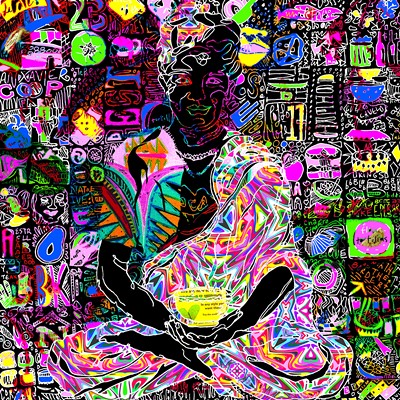When Beverly Seckinger was about 10 years old, she saw an anti-Vietnam protest for the first time.
The daughter of a professor at the University of Wyoming in Laramie, Seckinger wandered out of a campus building and happened upon the striking spectacle of the political protest. She was enthralled. She didn't know much about those passionate students marching for a cause, but "I looked up to them enormously," Seckinger says.
Now 58, a decade younger than those long-ago demonstrators, Seckinger has held onto her fascination for baby boomer counterculture.
"I missed everything!" she says, only half joking. "This generation dropped a big boulder in the cultural pond."
For the last 10 years—in between her full-time job as a UA professor of film and TV and her moonlighting gig as the bassist for the popular Tucson band the Wayback Machine— Seckinger's been working on a documentary about people who followed the generational call to go back to the land.
Next Thursday, April 12, at The Loft, the film, Hippie Family Values, gets its Arizona debut.
The movie focuses on a communal ranch founded in 1976 and still going today. Many of the original founders, who kicked in some $1200 apiece to buy the land 42 years ago, are still living on their piece of paradise—a green and hilly patch of rural New Mexico, shot through with hot springs.
"These are very principled people, living by their values," Seckinger says. "They have a lot to be proud of. They made their dreams a reality through really hard work."
Seckinger's one-hour movie is filled with revealing interviews with long-time residents and now-grown kids who were raised there. An experienced documentary filmmaker best known for her Laramie Inside Out, a "docu-diary" about the homophobic murder of Matthew Shepard in 1998, Seckinger pairs lushly colored film that she shot herself along with still photos and even home videos made by members in the commune's earlier days.
Among the people we meet is Dulcie, a young woman who grew up on the ranch and has now returned to raise her own children. The daughter of an intrepid ranch pioneer, Sally, who built her own adobe house, Dulcie recalls an idyllic, loving, TV-free childhood in a beautiful place with a pack of kids nearby always ready to play elaborate and imaginative games.
Kate, a successful potter now in her late 60s, explains that she came to the ranch as a young woman, with the intent of raising her children in the exact kind of community that Dulcie describes.
The commune members' strong family values apparently paid off.
"The people they raised are amazing," Seckinger says. One former ranch kids is an oncologist, another an engineer, still another a psychologist. "They have a passion to change the world in a positive direction."
Along with creating closer families, the commune's other big raison d'être is preserving the environment, and acting as stewards to the land and water in their trust. Concerned about climate change, they use water-free composting toilets, raise their own organic food in pesticide-free gardens and buy few commercial goods.
"They've invested in the specialness and sacredness of this place," Seckinger says. "They're hard workers. They're not consumerist."
In fact, she made the movie largely to challenge the common stereotypes of hippies as dumb, dirty and lazy, with a distressing tendency to go around mindlessly saying, "Peace man."
"I'm all about busting stereotypes," the filmmaker says.
Her first film grew out of her years as a Peace Corps volunteer and then anthropological field worker in Morocco. The experience made her realize she wanted to be a documentary filmmaker; she left the UA's anthro program with a master's and enrolled in film studies at Temple University. Her MFA thesis movie, Letter from Morocco, was a "colonialist white guilt piece" about the stereotypes of Arabs and the Middle East.
Joining the fledgling media arts department at the UA in 1990, she made Planet in My Pocket, a humorous "crazy romp" film about "the commodification of other cultures." She started up the popular Lesbian Looks film series in 1993, to bring lesbians' work to the screen, and made a few funny lesbian shorts herself, including Mommy Queerest.
Her biggest film, Laramie Inside Out, was an anguished personal look at the anti-gay violence that erupted in her hometown and at the outside gay-hating agitators who invaded the town. Released in 2004, "it had a really good run," she says.
Her travels with the Wayback Machine got her to thinking about a documentary on the counterculture. Gigging seven or eight times a month, "I was getting to know the slightly hidden hippie diaspora in southern Arizona and New Mexico, and meeting these really interesting old hippies."
She cast a wide net at first, shooting in Cascabel and Bisbee, in Haight Ashbury, even, and on Tucson's own Fourth Avenue, where she immersed herself in the family crew that ran Piney Hollow. After playing at the New Mexico ranch that ended up becoming the focus of her film, "I became enamored of the place."
Return engagements sealed the deal, and she began shooting in earnest in 2006, when the community celebrated its 30th anniversary.
Seckinger believes that the ranch—and the hippie wave—has much to teach America.
"Rather than disappearing, the movement has had an impact," she says. As early proponents of the local organic foods movement, back-to-the-landers helped transform the American diet, moving it away from highly processed foods to the likes of brown rice and yogurt.
The ranch members who gave their children a freer childhood are now "providing lessons about aging, about community alternatives we should consider for the latter part of life."
Hippie values, on family, on stewardship of the land, on food, on a simple life, make good counterpart to the present political moment, she says.
"These values are diametrically opposed to the values of fame and fortune that elected the president."

